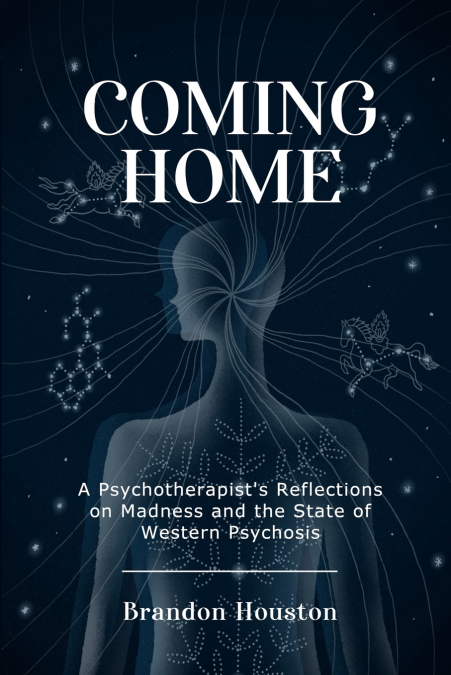
Brandon Houston
'Brandon Houston’s Coming Home is a powerful antidote to the poison of mainstream psychiatric thinking. We need more accounts like this: deeply personal and heartfelt, infused with spiritual reflection, and pointing the way towards new responses to madness.'-Will Hall, host of Madness Radio, author of The Harm Reduction Guide to Coming Off Psychiatric Drugs'Madness is a topic that’s ill-treated in both the Western and Eastern psychological traditions. We need more well-written and engaging books like this to help normalize, soothe, and support the most sensitively attuned among us... If you find yourself living in an unwise society, as many of us do, count yourself lucky to have access to the wisdom of Coming Home.'-Vince Fakhoury Horn, Dharma Teacher, Buddhist GeeksComing Home is a quiet, unflinching account of psychosis - what happens when perception ruptures the shared world, how a self forms to make sense in the extremes and the journey home.Brandon Houston, MA, LPCC, weaves his lived experience of madness, his extensive clinical experience and two decades of training in contemplative traditions to support him in paving a new way of relating to recovery from psychotic experiences.Part memoir, part clinical reflection, and part philosophical offering, Coming Home introduces:A framework for living wholeheartedly post-breakAn account of healing as rhythm, not returnA quiet challenge to mainstream psychiatric narratives, rooted in lived experience and contemplative careA field guide for clinicians who suspect there’s more happening than pathology can explainA hand extended to those who have been through madness, offering not solutions but companionshipAt its heart, Coming Home encourages clinicians, patients, and loved ones to move away from pathological narratives of broken brains, chemical imbalances, and heritable illness; to embrace the reality of recovery from psychosis, and most importantly restoring the possibility of wholehearted living post-break.Coming Home explores what it means to honor one’s unique sensitivities and experiences as well as the training needed to live in the world with a sensitive disposition. The author posits recovery from psychosis as a natural process akin to any other healing, a process that requires gentleness, groundedness, and understanding to take hold.It’s a book about perception, meaning-making, and the slow work of reclaiming a life without denying one’s experience.For those looking for a perspective on madness outside of traditional mental health, Coming Home offers new ways of thinking about madness, recovery, and what it means to be human, ultimately challenging traditional mental health to imagine new stories to support healing from madness.